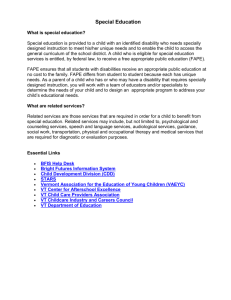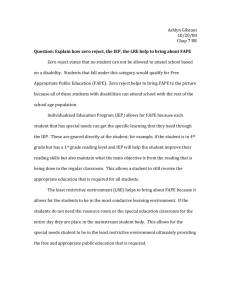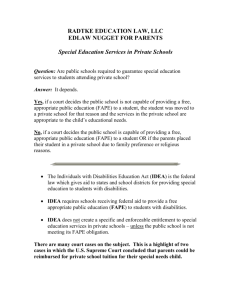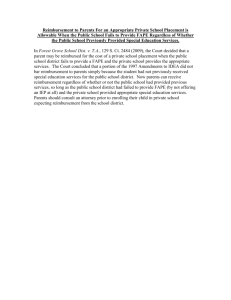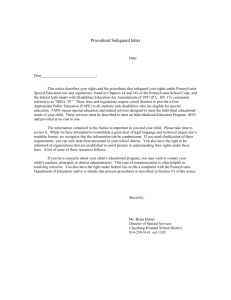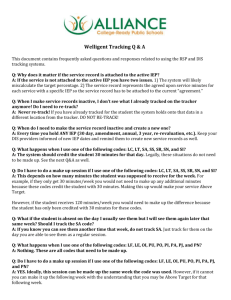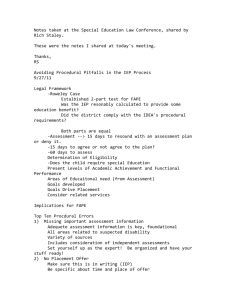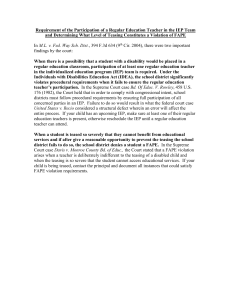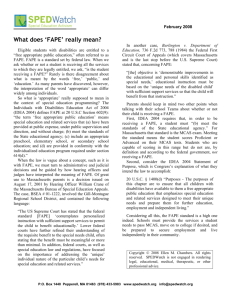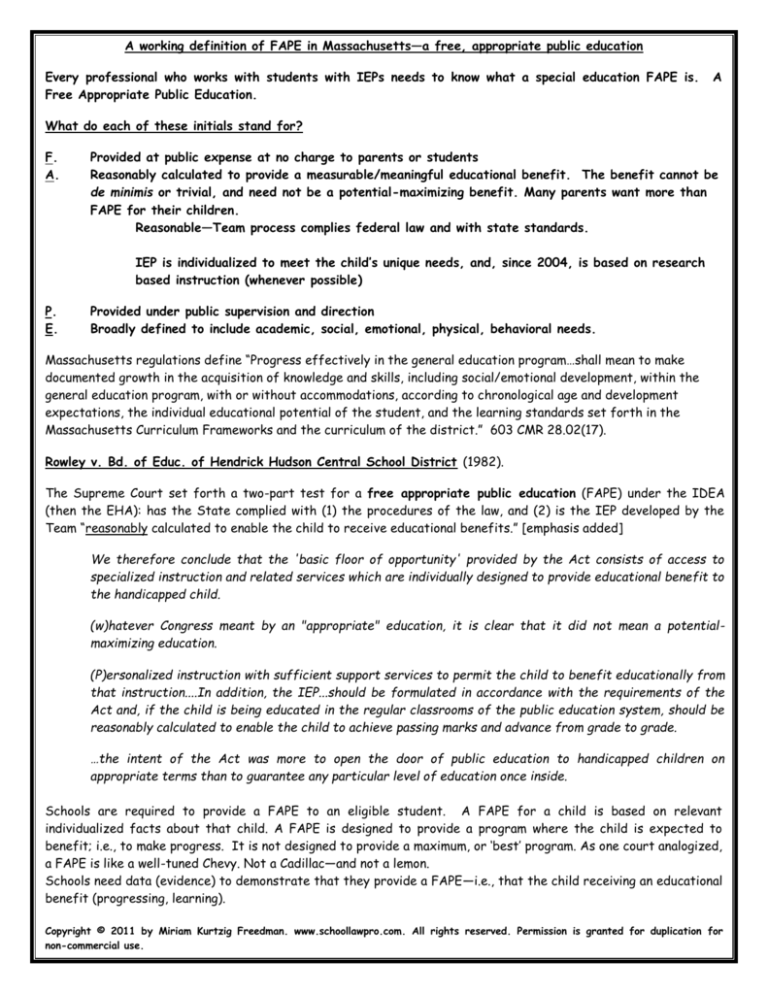
A working definition of FAPE in Massachusetts—a free, appropriate public education
Every professional who works with students with IEPs needs to know what a special education FAPE is.
Free Appropriate Public Education.
A
What do each of these initials stand for?
F.
A.
Provided at public expense at no charge to parents or students
Reasonably calculated to provide a measurable/meaningful educational benefit. The benefit cannot be
de minimis or trivial, and need not be a potential-maximizing benefit. Many parents want more than
FAPE for their children.
Reasonable—Team process complies federal law and with state standards.
IEP is individualized to meet the child’s unique needs, and, since 2004, is based on research
based instruction (whenever possible)
P.
E.
Provided under public supervision and direction
Broadly defined to include academic, social, emotional, physical, behavioral needs.
Massachusetts regulations define “Progress effectively in the general education program…shall mean to make
documented growth in the acquisition of knowledge and skills, including social/emotional development, within the
general education program, with or without accommodations, according to chronological age and development
expectations, the individual educational potential of the student, and the learning standards set forth in the
Massachusetts Curriculum Frameworks and the curriculum of the district.” 603 CMR 28.02(17).
Rowley v. Bd. of Educ. of Hendrick Hudson Central School District (1982).
The Supreme Court set forth a two-part test for a free appropriate public education (FAPE) under the IDEA
(then the EHA): has the State complied with (1) the procedures of the law, and (2) is the IEP developed by the
Team “reasonably calculated to enable the child to receive educational benefits.” [emphasis added]
We therefore conclude that the 'basic floor of opportunity' provided by the Act consists of access to
specialized instruction and related services which are individually designed to provide educational benefit to
the handicapped child.
(w)hatever Congress meant by an "appropriate" education, it is clear that it did not mean a potentialmaximizing education.
(P)ersonalized instruction with sufficient support services to permit the child to benefit educationally from
that instruction....In addition, the IEP...should be formulated in accordance with the requirements of the
Act and, if the child is being educated in the regular classrooms of the public education system, should be
reasonably calculated to enable the child to achieve passing marks and advance from grade to grade.
…the intent of the Act was more to open the door of public education to handicapped children on
appropriate terms than to guarantee any particular level of education once inside.
Schools are required to provide a FAPE to an eligible student. A FAPE for a child is based on relevant
individualized facts about that child. A FAPE is designed to provide a program where the child is expected to
benefit; i.e., to make progress. It is not designed to provide a maximum, or ‘best’ program. As one court analogized,
a FAPE is like a well-tuned Chevy. Not a Cadillac—and not a lemon.
Schools need data (evidence) to demonstrate that they provide a FAPE—i.e., that the child receiving an educational
benefit (progressing, learning).
Copyright © 2011 by Miriam Kurtzig Freedman. www.schoollawpro.com. All rights reserved. Permission is granted for duplication for
non-commercial use.

